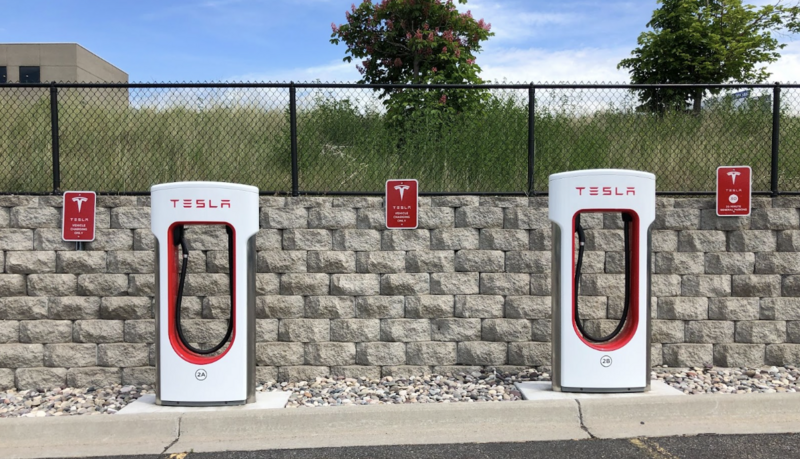Tesla’s grip on EV charging is tightening, with Mercedes-Benz reaching a deal to access Tesla’s Supercharger network and adapt its vehicles to its charging standard.
- Mercedes is the latest automaker to strike a deal with Tesla, as Ford, General Motors, Volvo, and Rivian all recently came to similar agreements.
Why it matters: By opening its charger network to non-Tesla drivers, the automaker is establishing dominance over a core part of the critical infrastructure for EVs: The public charging network.
- With GM, Ford, and—now—Mercedes all signed up to use its chargers (which use proprietary hardware different than what’s in place at other charging stations), operators of charging stations will now pretty much have to install Tesla chargers in order to compete.
Why it’s happening: Tesla isn’t sharing access to its chargers—which it spent billions to build—out of the goodness of its heart. It sees the Supercharger network as a potentially lucrative part of its business.
-
Some analysts believe Tesla’s charging network could eventually be worth up to US$100 billion, with non-Tesla drivers opting to use it because of its relatively fast charging speeds and reliability.
- Tesla may also be able to use its charging network to collect troves of valuable data on the vehicles that use it, giving it an inside look at its competitors' battery systems and engineering.
Yes, but: Tesla’s growing control over the EV charging infrastructure gives them a potentially problematic level of power that could create conflicts of interest that ultimately hurt drivers.
-
Tesla CEO Elon Musk has promised not to treat non-Tesla customers differently than his own, but there’s no certainty that promise will be upheld in the future.
- By way of analogy, you can probably imagine what sort of problems might arise for drivers if one company owned most of the gas stations and also sold cars.
Bottom line: While the decision to buy in to Tesla’s charging system may make sense for automakers desperate to sell EVs right now, they may come to regret giving Tesla so much control over such important infrastructure.
